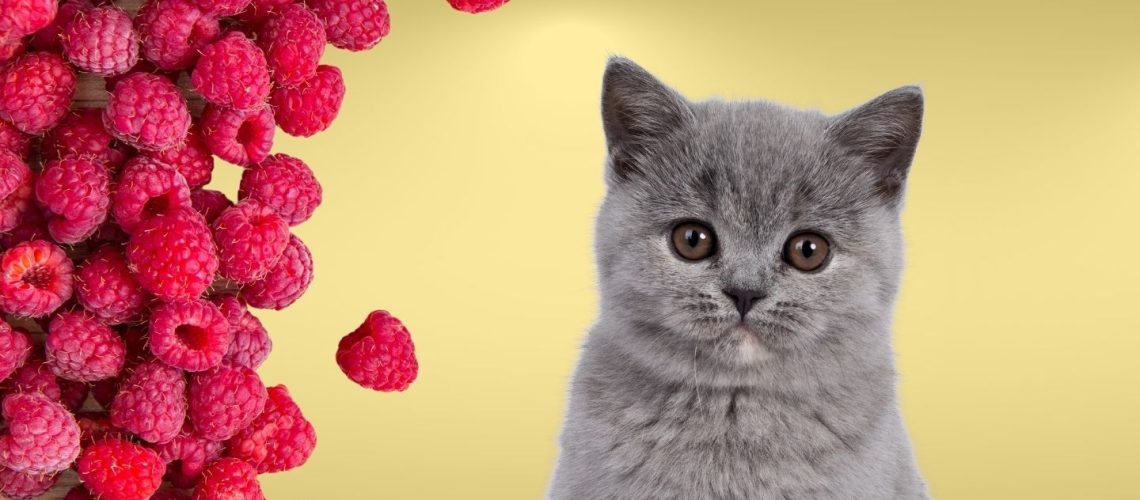Yes, cats can eat raspberries in small amounts as a treat. However, it is important to keep in mind that raspberries should only be given to cats in moderation, and they should not be a significant part of a cat's diet. As obligate carnivores, cats require a diet primarily composed of animal protein to meet their nutritional needs.
Nutritional Benefits of Raspberries for Cats
Raspberries are a good source of vitamins C and K, manganese, and fiber. These nutrients can provide some health benefits for cats:
Vitamin C and its role in immune system support
Vitamin C helps support a cat's immune system, although cats can synthesize this vitamin on their own.
Vitamin K and its role in blood clotting
Vitamin K is essential for proper blood clotting and may help cats recovering from an injury.
Manganese and its role in metabolism and bone health
Manganese plays a role in promoting healthy bone growth and supporting metabolism.
Fiber and its role in digestion
Fiber can contribute to a cat's healthy digestion and help prevent hairballs.
However, raspberries also contain sugar, so it is crucial to limit the amount a cat consumes to avoid dental and weight issues.
Feeding Raspberries to Cats: Tips and Guidelines
When feeding raspberries to cats, consider the following tips:
Washing raspberries before feeding
Always wash raspberries thoroughly to remove any pesticides or dirt before giving them to a cat.
Serving size and frequency
Offer small amounts of raspberries (1 or 2 berries) as an occasional treat. These treats should make up no more than 10% of a cat's daily caloric intake.
Monitoring for any adverse reactions
Watch your cat for any signs of an allergic reaction, such as itching, swelling, or difficulty breathing after consuming raspberries.
Alternatives to raspberries as treats for cats
Consider offering other cat-safe fruits, like blueberries or small pieces of melon, as alternatives to raspberries.
Possible Risks of Feeding Raspberries to Cats
There are potential risks to feeding raspberries to cats:
Sugar content and potential dental issues
The sugar content in raspberries can lead to dental issues and tooth decay if consumed in excess.
Weight gain and obesity
Excessive consumption of raspberries can contribute to weight gain, leading to obesity and related health issues.
Allergic reactions
Some cats may be allergic to raspberries, leading to itching, swelling, or difficulty breathing.
Interference with nutrient absorption
Excessive consumption of raspberries may interfere with the absorption of essential nutrients from a cat's regular diet.
Frequently Asked Questions
Can cats be allergic to raspberries?
Yes, some cats can be allergic to raspberries. Monitor your cat for any signs of an allergic reaction when offering raspberries as a treat.
Can kittens eat raspberries?
Kittens can eat raspberries in very small amounts, but it's essential to prioritize a nutritionally complete kitten-specific diet to support their growth and development.
Can cats eat raspberry leaves or stems?
Cats should not eat raspberry leaves or stems, as they may pose a choking hazard or cause digestive irritation.
Are other berries safe for cats?
Some other berries, like blueberries and strawberries, are safe for cats to eat in moderation. Always research the safety of a particular fruit before offering it to your cat.
Conclusion
In conclusion, cats can safely eat raspberries in small amounts as a treat. It's essential to remember that raspberries should be given in moderation and not replace a balanced, species-appropriate diet. By following these guidelines, cats can enjoy the nutritional benefits of raspberries without posing significant risks to their health.











